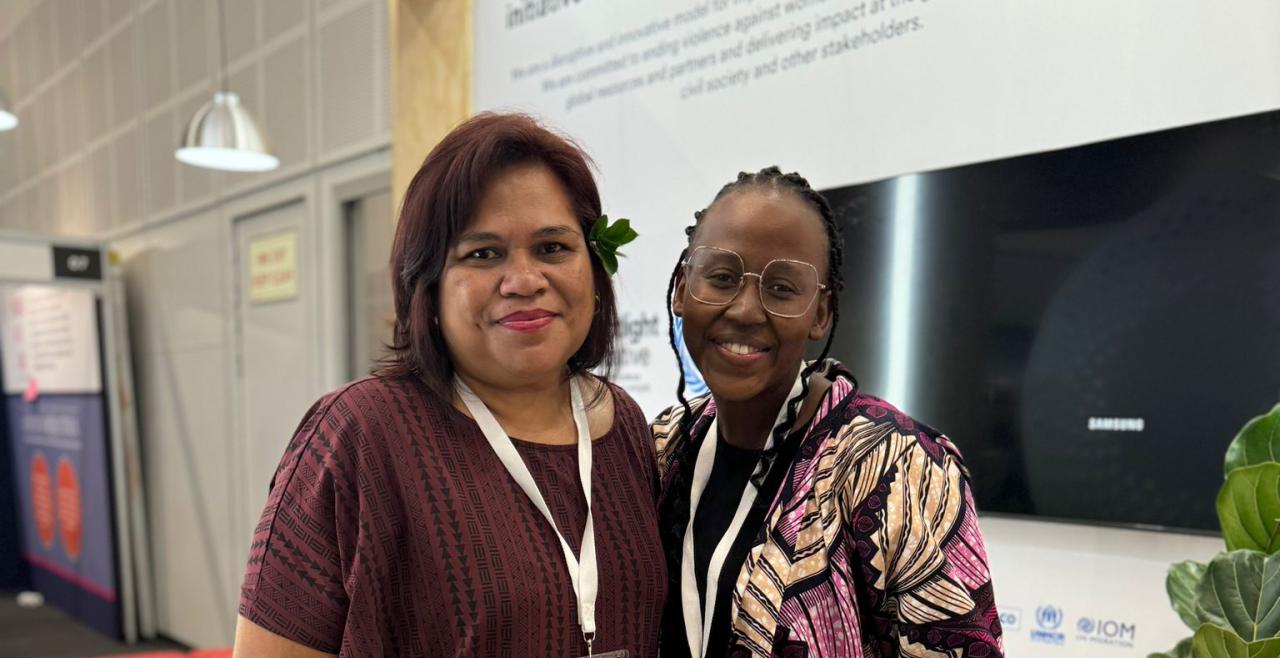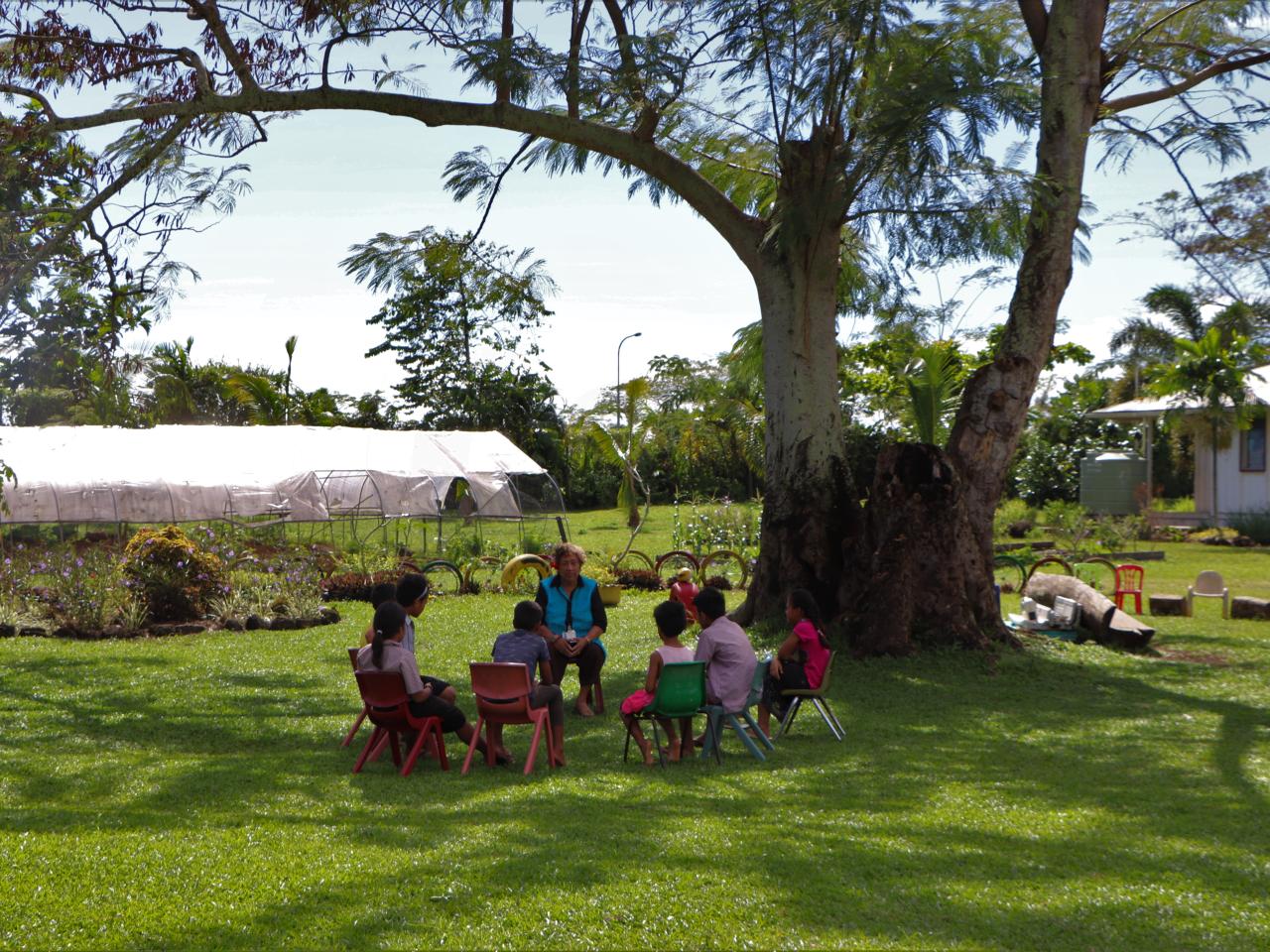“You cannot have men deciding things that affect women” - Why women and girls must be at the centre of climate action

Helen Tanielu is a senior lecturer, academic and researcher at the National University of Samoa. Her expertise is around family violence and ending violence against women and girls (EVAWG).
Why did you begin working on family violence prevention?
I became interested in family violence about 12 years ago. It was really interesting to me from a development perspective because development programmes were coming to Samoa but not at that time for ending violence against women and girls (EVAWG). My children and I are survivors of family violence, so that impacted my outlook on ways we should try and combat violence against women and girls - family violence, in particular, because of the holistic nature of the violence that occurs within families. In Samoa, the extended family is quite big. Violence is particularly difficult for women and their intimate partners, but also for women and their in-laws, women and their own families. It’s an area that people find really difficult because we are such a traditional community and we have traditional values and beliefs that do not always coincide with an understanding of how to work towards EVAWG.
Tell me about the intersection of climate change and violence against women and girls in the Pacific.
The Pacific is probably the region that will be most affected by climate change in terms of sea level rise and changes in our weather patterns. That includes our coastal waters, land erosion - every major cyclone has a big effect on the coastal villages. The intersection between climate change and women is that more violence occurs, especially when men and women have to stay together in certain environments, for example when they have to move to a shelter [because their home is destroyed]. We’ve found that in some shelters, there are distinct areas where sexual violence occurs.
Even if you’re not in the shelter and you’re in the villages, the increase in intimate partner violence occurs because social structures break down, people panic, their houses may fall. It makes men more angry and women are more vulnerable. Not only is she trying to look after her children, but she is trying to cater to his needs too. In Samoa, under our social norms, she is the one who does all the [domestic] work – cleans, makes the food, etc. Then he’s home because there’s no work or the roads have broken, and he takes his frustration out on her.
How can we elevate the EVAWG and climate change agenda?
I think we need more women and girls involved. You can’t have a group of men who will come in and not fully understand the effects of climate change on women and girls. They deal with so much more than the physical effects – they deal with the children, the grandparents, food, how to get food, unpaid care work.
You cannot have men deciding things that affect women. Our young girls have a lot to say but they’re restricted from saying things within certain contexts. It’s [also] important to understand that women who work in the emergency services and deal with gender-based violence play a really important role in understanding what other women are going through.
As told to Samu Ngwenya-Tshuma. Interview has been edited for length and clarity.

